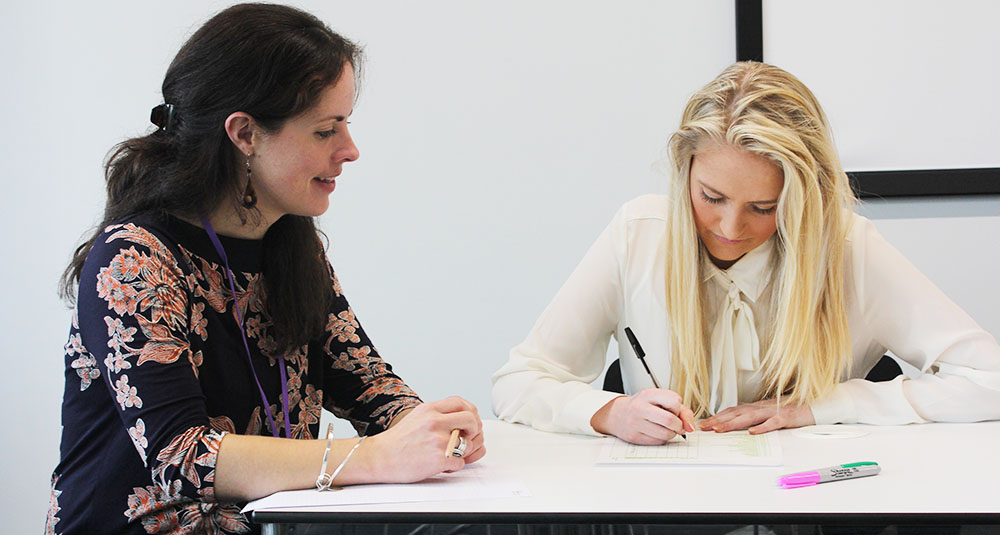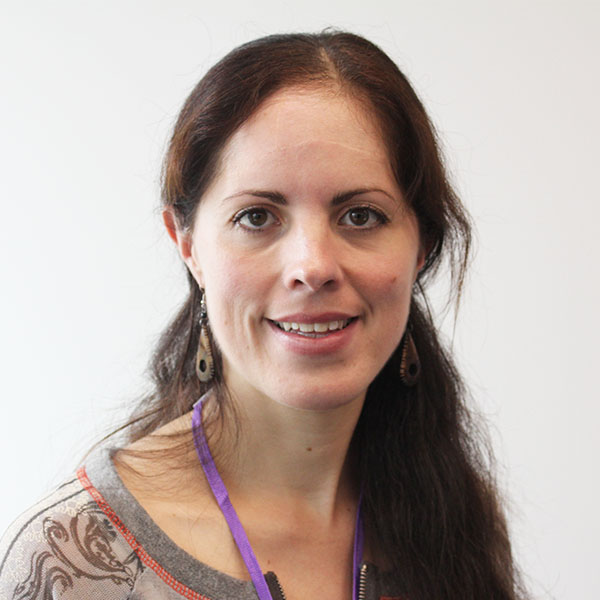Sarah Chaplin,
Clinical psychologist
I engage in holistic, integrative, high quality and thorough clinical work that is individual-centred and evidence-based.
I have worked throughout my career with young people, support workers/ carers and their families, supporting them through challenging periods. Working with children and young people who have experienced childhood trauma and abuse is one of my passions and specialisms.
Through my work with foster parents, carers, residential staff and young people I have expanded my expertise in this area.

Sarah Chaplin carrying out a clinical assessment
My education
2011
Registered Psychologist status The Psychology Board of Australia, Australian Health Practitioner Regulation Agency2008
Provisional Psychologist status The Psychology Board of Australia, Australian Health Practitioner Regulation Agency2005
Postgraduate Diploma in Psychology (including dissertation) Macquarie University, Australia 2004
Bachelor of Arts, Psychology Macquarie University, Australia
My work history
2017
Clinical psychologist HSR Psychology2017
Clinical psychologist Private2016
Programme supervisor Charity2014
Senior clinical consultant Children’s services2012
Psychologist Private2011
Locum senior clinical consultant Community justice programme2009
Intern psychologist Private2008
Caseworker Children’s services2007
Senior behaviour therapist Private2007
Senior applied behaviour analysis (ABA) therapist Independent2004
Applied behaviour analysis (ABA) and verbal behaviour therapist Independent2003
SEND camp counsellor Private
My experience
Through my various roles I have the following specialisms:
- Adolescent/ adult mental health
- Child development
- Challenging behaviour: self harm, aggression, and offending behaviour
- Positive behaviour support
- Looked after children/ young people in foster care, kinship, family and residential (secure & community) settings
- Treatment foster care
- Residential care
- Transitions - e.g. mainstream school, return to biological parents care
- Attachment
- Systemic family therapy
- Counselling/ 1:1 Therapy (e.g. non directive art and sand tray interventions; behavioural approaches - DBT, CBT; humanistic and trauma specific interventions/ strategies)
- Edge of exclusion
- Emotional regulation
- Critical incidents
- Clinical consultancy, training and supervision
- Childhood trauma: related theories and intervention models
- Multi-agency collaboration and partnerships
- Community/ school (re) integration
- Complex child, adolescent and adult cases
- Developmental disorders
- Clinical consultancy
- Systemic application of dialectical behaviour therapy/ borderline personality disorder
I take an individual-centred approach to my role as a clinical psychologist, which helps me to provide the most appropriate support for each individual so they can be happy, safe and ready for life’s challenges.
My professional memberships
Graduate Member, British Psychological Society
General Member of the Division of Clinical Psychology, British Psychological Society
Health and Care Professions Council (HCPC) - PYL31750
Australian Health Practitioner Regulation Agency (AHPRA); Psychology Board of Australia - PSY0001647614
Needs identification
As a qualified and experienced clinical psychologist I can identify needs and support interventions for the following areas:
I also provide diagnostic follow up services to address identified needs, including interventions.
Q
&
A
with Sarah
How can you help parents/carers?
To provide psycho-education/ training on an array of topics and conditions; to helping parents to build a toolkit of strategies to use with their children to manage challenging behaviour, to build a secure and safe homebase and routines; to help parents to understand their children’s behaviour: what triggers them, what drives them, what maintains them and how to mould them into more positive and adaptive behaviour.
Describe your approach to young people in 3 words.
Individualised, integrative and creative.
What is the best thing about being a clinical psychologist?
Being able to help make a difference in the life of others, no matter how great or small that change may be. The following quote illustrates a life mantra and formed the basis for my career choice. I first saw the quote used by World Vision Australia in their advertising when I was in my early teens and it rather resonated with me:
“No one person can change the world but you can change the world for one person”, author unknown.
What fascinates you about young people?
Their resilience in the face of a life of adversity that can be unimaginable for most to even fathom.


